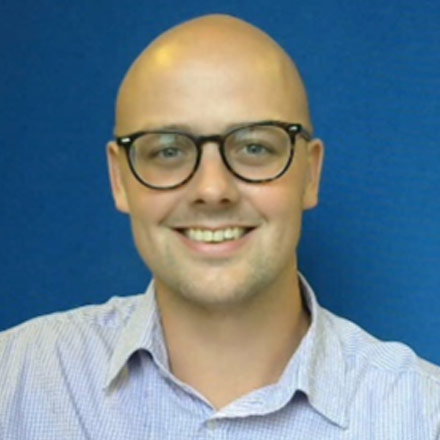Samuel Trethewey
Current Position: Academic Clinical Fellow
Research Field: I am currently working on projects focussing on the mental health of children and young people in England as part of the Children and Young people’s Mental (ChYMe) health research group. This has involved a mixture of quantitative epidemiological studies and qualitative methodologies.
Why did you decide to undertake clinical academic training and what pathway have you taken so far?
Since medical school I have had a strong interest in science and evidence-based medicine, but I became increasingly drawn to clinical academia following my completion of an intercalated degree in cardiovascular research, followed by the academic foundation programme in the midlands. It was through these early experiences that I developed a range of transferable skills and interests in using different research methodologies and in various clinical specialities. After gaining further clinical research experiences out of training, I then applied for my current post as an ACF in public health (which I am now close to completing!). For me, one of the big motivators to undertake clinical academic training is the breadth of skills and experiences one can develop and the range of people you can meet and work with; it is so rewarding and mentally stimulating!

Why did you choose to conduct your clinical training at the University of Exeter and what are some of the highlights?
As a Cornish lad, it has always been a goal to return to the South West and seek out opportunities to develop as a clinical academic here. Securing a clinical academic training post at the University of Exeter really was dream come true as it gave me access to a vast network of world leading researchers to collaborate with and learn from. There is so much cutting-edge research going on here that you are bound to find someone working on something that interests you. I have been lucky enough to work with a brilliant team of researchers during my time here and will hopefully continue to do so for the foreseeable future.
What challenges have you faced during your clinical academic training and how have you overcome these?
The most significant challenges for me have been balancing academic and service work, whilst trying to also progress through my public health training programme and achieve the required competencies. Juggling projects across a range of specialist areas has also been challenging at times but is possible with determination and careful planning!
What impact has clinical academic training had on your career and what are your next steps?
It has undoubtedly opened so many avenues and created new and exciting opportunities for me. I have loved the networking that comes with academia, and I have developed strong links with a range of researchers across the University. Having the protected academic time is invaluable and has supported me to develop as an academic, which has also benefitted me in my public health training. I look forward to applying for an NIHR Doctoral Fellowship to further develop and pursue my academic interests.
What advice would you give to an aspiring clinical academic?
My advice mainly centres around obtaining a breadth of experience to academic medicine during your clinical training. Start early to get a feel for whether research interests you, get involved in projects where you have capacity, be careful of your time and do not say yes to everything. Linked to this is the need to be clear on what you will get out of involvement in projects – upfront agreements are crucial when your time is so precious and limited! Above all, be curious and enthusiastic and seek out opportunities, they will not always come to you!



